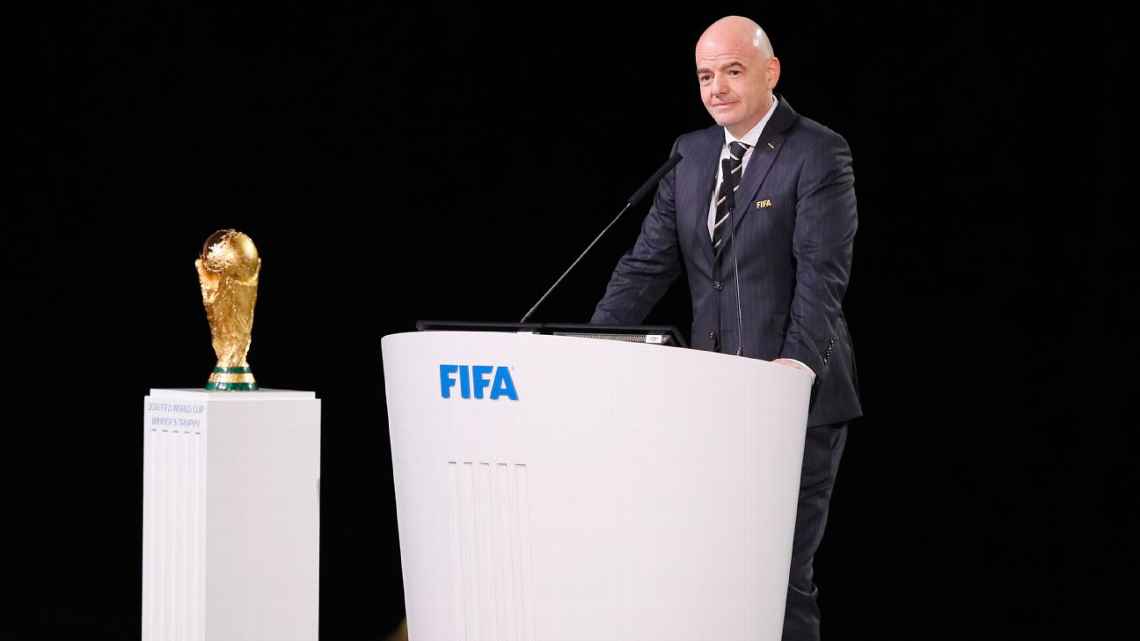
Saudi Arabia is on track to host the 2034 FIFA World Cup, marking the second time the tournament will be held in the Middle East after Qatar’s 2022 World Cup. FIFA’s evaluation report for Saudi Arabia, the sole bidder for the tournament, indicated the likely need for the competition to be played during the cooler months of October to April due to extreme heat during summer, labeling this an “elevated risk.”
FIFA is set to officially announce the hosts for both the 2030 and 2034 World Cups on December 11. The 2030 World Cup will be hosted by a unique transcontinental bid involving Spain, Portugal, Morocco, Argentina, Uruguay, and Paraguay to commemorate the centenary of the inaugural tournament in Uruguay in 1930.
Saudi Arabia’s Bid Highlights:
- Winter Scheduling:
FIFA’s report emphasizes the necessity of a winter schedule to accommodate Saudi Arabia’s climatic conditions, mirroring the adjustments made for Qatar 2022. However, this scheduling is expected to cause disruptions to global football calendars. - Human Rights Concerns:
While Saudi Arabia’s human rights record remains a contentious issue, FIFA rated this as a “medium risk” in its assessment. The report suggests hosting the World Cup could potentially contribute to positive human rights developments in the country, though such progress would require “significant effort and time.” - Infrastructure and Stadia Plans:
Saudi Arabia plans to construct multiple new stadiums, including an ambitious “stadium in the sky” in the futuristic city of Neom, set to be built 350 meters above ground. FIFA’s evaluation rated this as a medium risk due to the scope and timeline of the construction projects. - Scoring Highest in Evaluation History:
Saudi Arabia scored 419.8 out of 500 in FIFA’s evaluation process, the highest score ever for a World Cup bid.
Timing Challenges and Religious Considerations
FIFA acknowledged challenges related to the tournament’s timing, including potential conflicts with:
- Ramadan, the annual month of fasting and prayer observed by Muslims.
- Hajj, the yearly pilgrimage attracting over 1.5 million pilgrims to Saudi Arabia.
The report noted that careful planning will be needed to harmonize these religious events with the World Cup schedule.
Winter World Cups and Global Disruption
The decision to hold another winter World Cup is expected to generate controversy. Qatar’s 2022 tournament required a one-month break in major leagues and an extension of domestic football seasons, causing logistical headaches for clubs and players. FIFA has yet to finalize the International Match Calendar for 2034, leaving room for potential adjustments.
FIFA’s Vision for the Middle East
Under FIFA President Gianni Infantino, the World Cup has now been awarded to Middle Eastern nations twice, reflecting a broader strategy to expand football’s global reach. FIFA’s report underlined its intention to consider optimal conditions for players and spectators while managing the risks posed by climate, infrastructure, and scheduling complexities.
If finalized, the 2034 FIFA World Cup will highlight Saudi Arabia’s growing influence in global sports, despite ongoing debates about human rights and climate challenges.
SOURCE: espn.com
Leave a Reply